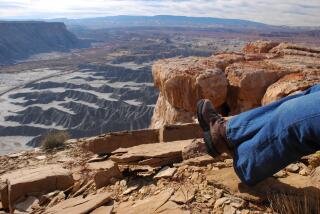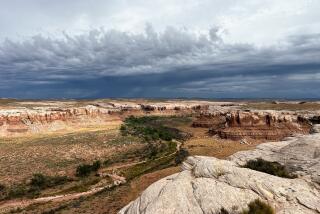U.S. Drops Plan for Utah Land Swap
- Share via
WASHINGTON — The Bush administration is abandoning a controversial land swap with the state of Utah after the Interior Department’s inspector general confirmed complaints by the government’s own experts that the deal amounted to a multimillion-dollar giveaway by U.S. taxpayers.
Utah Gov. Mike Leavitt and officials with the Interior Department and the Department of Agriculture agreed to terminate the agreement in letters signed and made public Wednesday.
“Although some aspects of this land exchange proposal still have merit, because doubt and uncertainty would cloud future consideration of it, we no longer believe that pursuit of this exchange would be in the best interest of the federal or state government or the public,” wrote Interior Secretary Gale A. Norton in a letter to Rep. Chris Cannon (R-Utah), a member of the House Resources Committee who favored the deal.
The deal, under a pact signed in 2002, would have exchanged 135,000 acres of federal land for 108,000 acres of state parcels. Utah would have gotten commercially attractive land that would pump tax revenue into its school system. The federal government was to get scenic red-rock bluffs for a possible monument as well as prime habitat for the threatened desert tortoise.
But at least six officials at the federal Bureau of Land Management complained internally that the swap offered a $100-million windfall to the state. They said several parcels of mineral-rich federal land had been counted as having little or no mineral value.
BLM negotiators and their bosses at Interior valued the state and federal lands at about $35 million each. But the BLM’s Utah office said the federal land was worth $97 million to $117 million more.
An inspector general’s report found that Interior officials “negotiated away a substantial interest in the potentially very valuable oil shale resource” of part of the land. They also failed to value part of the land “in a manner consistent with the valuation of certain other federal properties,” the report said.
More to Read
Sign up for Essential California
The most important California stories and recommendations in your inbox every morning.
You may occasionally receive promotional content from the Los Angeles Times.










